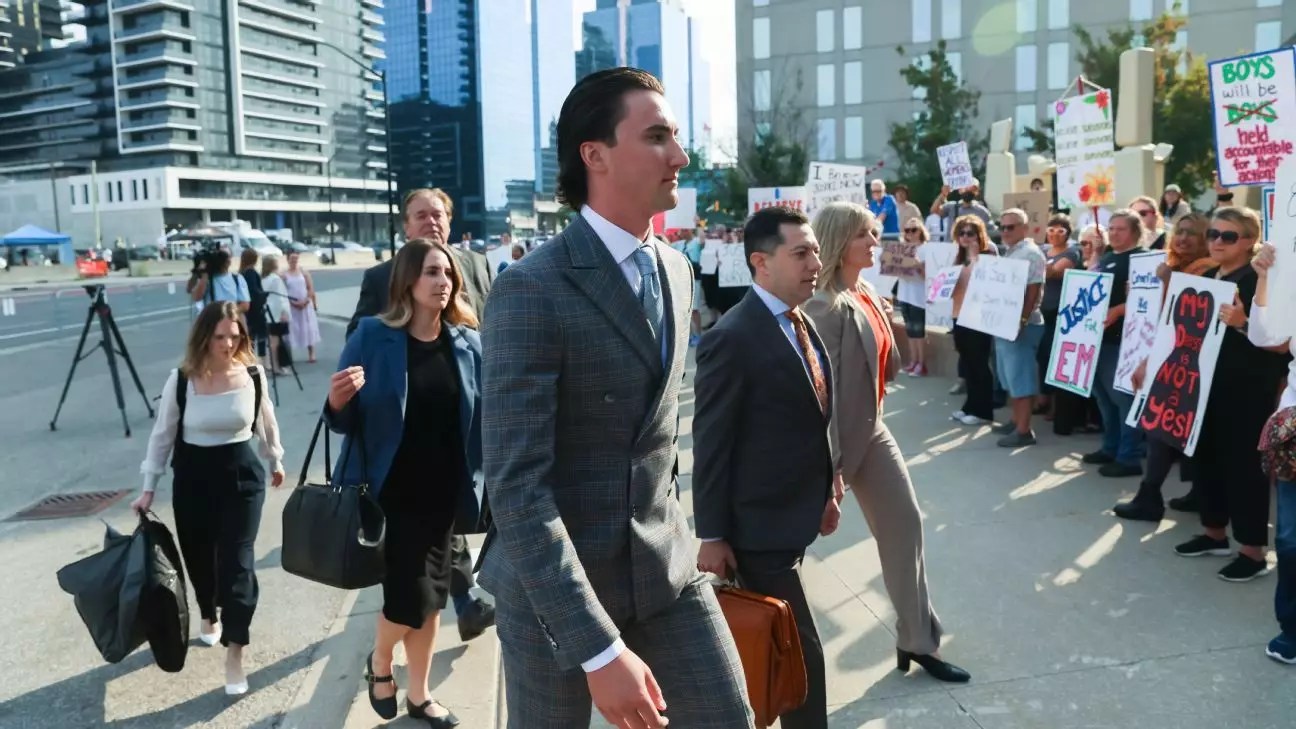When high-profile athletes face serious allegations, the legal process becomes a battleground not only for justice but also for public opinion. The recent acquittal of five former junior hockey players on sexual assault charges demonstrates the complexities courts face when discerning credible evidence amid highly charged circumstances. While the legal system rendered a clear verdict, the reverberations extend beyond the courtroom, influencing perceptions of guilt, innocence, and institutional responses. The fact that the Canadian government chose not to appeal indicates a legal acknowledgment that due process was followed appropriately, yet it leaves questions about societal trust in the justice system. The case underscores the importance of a rigorous, impartial judicial process that prioritizes truth over sensationalism, ensuring that verdicts aren’t overshadowed by media narratives or public outrage.
Dissecting Credibility and the Role of Judicial Discretion
Judge Maria Carroccia’s evaluation of the complainant’s testimony highlights the intricate relationship between credibility and judicial decision-making. Her comments, noting inconsistencies and exaggerations, reflect how courts navigate the often murky waters of personal accounts intertwined with memory, perception, and bias. This critical assessment is essential in preventing wrongful convictions based on unreliable testimonies. However, it also opens doors for debates about how justice deals with trauma survivors and the potential for their accounts to be misunderstood or dismissed. The ruling’s emphasis on the “troubling aspects” of the complainant’s evidence signifies the importance of careful judicial scrutiny, even in sensitive cases. Yet, it also raises lingering concerns about how society balances sensitivity with critical evaluation in accusations of sexual misconduct.
The Impact on the Athletes and the Professional Landscape
The aftermath for the athletes involved illuminates the fragile intersection between legal outcomes and professional futures. Although acquitted, none of the players currently have active contracts with the NHL. The league’s decision to keep them ineligible pending review signals a cautious approach rooted in protecting league integrity and public confidence. The NHL Players’ Association’s stance — advocating for reinstatement — introduces a debate about fairness versus reputation management. The discrepancy between legal innocence and professional eligibility reveals how organizations navigate the tension between upholding justice and safeguarding their brand. This scenario prompts broader reflection on how sports leagues should handle allegations that are legally resolved but still trigger significant reputational scrutiny.
Societal Reflection: Trust, Accountability, and Moving Forward
This case spotlights the societal struggle to reconcile legal results with public perception. Even with clear judicial judgments, skepticism persists, fueled by sensational media coverage and cultural debates around sexual assault. It challenges institutions to consider how they protect not only accused individuals’ rights but also the integrity of the community and victims’ voices. Moving forward, transparent policies and nuanced conversations are essential for rebuilding trust and ensuring justice serves its dual purpose: upholding the law and fostering societal healing. The case reminds us that true justice extends beyond courtroom verdicts; it requires a collective commitment to fairness, accountability, and the relentless pursuit of truth.


Leave a Reply